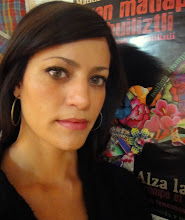
I just heard on MN Public Radio (thank you online streaming!) that Minnesota has the lowest number of overweight children in the nation BUT 1 in 4 of its children are overweight. If current obesity trends continue, soon 1 out of every 3 children will have diabetes as adults. THIS IS NOT OK. We should all be very concerned about this, it's unbelievable. This is all related to the issue I talked about over and over in this blog....We need a complete and radical change in the way we live, including our relationship with food.
Internationally, Mexico is #2 in obesity behind the United States, in terms of child obesity, Mexico is #1 in the world.
Check out this week's MPR obesity coverage.















